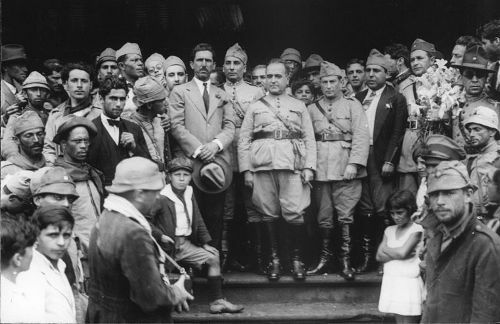As we study the concept of revolution, we are faced with an interesting “crisis” where we are not quite sure to find a consensus by which we can give a single meaning to this term. This is all because the historical experiences defined as “revolutionary” are not always the exact reflection of a previously established conception.
From there, we worry about what kind of historical fact can be considered “revolutionary”. The term revolution, at first sight, refers to any radical transformation that drastically affects the most varied aspects of a society's life. In this sense, the changes brought about by a certain event should be judged as revolutionary by any scholar who researched the same theme.
However, we realize that historical perspectives do not always agree with each other. Many historians are concerned with reflecting, for example, on the “limits” of a given revolution. In this way, a real contradiction is created where we do not know with absolute certainty whether a historical fact was or was not revolutionary. Could we thus say that, in fact, there are no revolutions?
According to currents of Marxist understanding, a revolution can only be experienced when all the fundamental points that sustain the status quo of a society are completely inverted. With this, it is admitted that if labor relations, social hierarchy, economic practices or daily habits remain after a historical change, the possibility of a revolution is excluded.
Do not stop now... There's more after the advertising ;)
One of the most notorious cases of this type of contradiction can be seen in the revolutions that took place between the 17th and 18th centuries. The fall of the Old Regime favored the political rise of the bourgeoisie, but maintained – under other parameters – the exploitation of the working classes. Even for this reason, many historians call such transformations “bourgeois revolutions”.
With this vagueness, certain historical currents only recognize a revolution in accordance with very definite terms. Others already relativize the term, admitting that it is impossible to trigger a total revolution. From these different conceptions, a heated debate is created where the possibility of historical conditions is discussed. that radically transforms a society or if any and all transformations fail to reach a level revolutionary.
It would be difficult to enact a final answer to this debate about revolutions. However, there is no way we can belittle one type of historical understanding to the detriment of the other. Meanwhile, we can discuss in a plurality of perspectives new understandings of the milder or more agitated historical experiences. Whether they are revolutionary or not.
By Rainer Sousa
Graduated in History
Would you like to reference this text in a school or academic work? Look:
SOUSA, Rainer Gonçalves. "Revolution: Know what revolution is"; Brazil School. Available in: https://brasilescola.uol.com.br/historia/o-que-e-revolucao.htm. Accessed on June 27, 2021.

